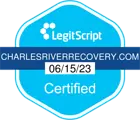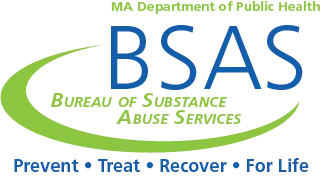Xanax Rehab Center in Massachusetts
Xanax is a kind of medication prescribed for panic disorders, depression, and anxiety. In the best cases, it balances out brain chemicals among clients who use it properly. This drug is part of a larger group called benzodiazepines, and it’s prescribed for anxiety more than any other medication across the country. It boosts the volume of neurotransmitters in the human brain. People who are prescribed this should feel better because they are calmer and more relaxed. When properly taken, Xanax is safe and effective. However, addiction to Xanax is possible. You should know how this works, the warning signs, and how to find an effective treatment center if you become addicted.
What Is Xanax?
Xanax is a brand name for the prescription sedative alprazolam. It impacts the central nervous system and brain and belongs to the family of benzodiazepines originally intended as replacements for barbiturates. This drug specifically works by boosting levels of GABA brain chemicals that slow down neural cell activity and help the user feel calmer and more relaxed. It is a depressant, so frequent side effects include anxiety, slurred speech, and difficulties with coordination. Peak drug effects happen within an hour or two, but the components remain in a user’s body for 12 to 15 hours.
Xanax Addiction
While Xanax can be very helpful with a number of conditions, it’s also, unfortunately, addictive in some circumstances, especially if it’s used on a long-term basis. Addiction to Xanax occurs frequently because it’s the most prescribed psychiatric medication across the country. The majority of teenagers who wind up with Xanax addiction started by accessing supplies of the drug available in the medicine cabinet at their family home.
Xanax tolerance happens quickly, and users have to start taking more of this drug in order to get the same results as before. Some Xanax addicts might use 20 or even 30 pills on a daily basis. Once a physical dependence develops, withdrawal symptoms come into play. Addicts wind up putting less energy into work and relationships and instead focus on behaviors attributed to seeking the drug.
Behavioral warning signs exist for Xanax addiction. Someone who continues to use the drug even after the warning signs become evident, resulting in obvious personal challenges, is an individual who needs help. Individuals with an addiction might desire to stop using the drug but aren’t able to do so. Instead, they might lose interest in things they used to enjoy and instead obsess about getting more Xanax and using it. Consuming the drug might be something they lose control over, and legal problems can happen to many people with a Xanax use disorder. Quitting cold turkey isn’t usually recommended for people hoping to cease their use after dependence begins. Medical supervision makes withdrawal much safer.
Xanax Withdrawal
Symptoms of Xanax withdrawal are similar to those detoxing from barbiturates or alcohol, and the convulsions might turn fatal in the worst circumstances. Medically supervised withdrawal through a tapered schedule is usually the ideal situation for users. Symptoms can start within just several hours of the final dose. Peak severity can range from the first to the fourth day of withdrawal. Taking the drug for more than a month can result in dependence.
Potential Treatment Options
Depending on the specialist or treatment center you work with, there are several potential treatments available for Xanax addiction. The following are six of the more common ones you might encounter on your road to recovery.
Cognitive Behavioral Therapy
CBT is a combination of behavioral and cognitive therapies used for both physical and mental health conditions. It’s a problem-focused approach that puts attention on current issues instead of diving into the reasons behind problems. This is how it differs from analytical psychotherapy. Clients undergoing this kind of therapy learn how to identify unhelpful thoughts and challenge them. Learning self-help strategies helps them change personal behaviors and gain better control over their thoughts and feelings. When properly empowered, they can face adversity better and respond to challenges in their lives more effectively. CBT helps clients deal with addictions, but it’s also useful for depression, anxiety, and PTSD.
Dialectical Behavior Therapy
Also known as DBT, this is a form of talk therapy that helps clients improve emotional management until they can make better changes in life. It has roots in CBT, but it’s intended for individuals with more intense emotions than others. This kind of therapy helps them understand their feelings so they can accept and then manage them. DBT originally started as a treatment for borderline personality disorder but can now be applied to substance use disorder, PTSD, eating problems, depression, suicide, and self-harm.
Dual Diagnosis Treatment
Individuals who are simultaneously dealing with substance use disorder and a mental health condition can find dual diagnosis treatment effective in navigating the complexity of their health status. The treatment provider works with the client to identify how multiple disorders impact each other and then addresses each issue separately. Specific treatment steps might include detox, psychotherapy, inpatient rehab, medication, support groups, and supportive housing. Improper management of cases such as these leaves individuals over-encumbered at home and work throughout all their relationships. Treating only an addiction without also managing co-occurring conditions increases the risk of relapse.
Eye Movement Desensitization and Reprocessing
Also known as EMDR, this kind of psychotherapy emphasizes the theory that traumatic memories can get lodged in the human brain. The thinking is that changing how such experiences are stored can help the person heal from their distress. EMDR sessions might involve a client watching something moving directly ahead of them before trying to track the provider’s fingers while retaining the memory. This instigates repetitive eye movements that can be calming or distracting. A client’s working memory has to process a high volume of simultaneous information. However, an image that becomes blurry might lose any emotional connotations to the point of altering how a client thinks about the specific experience. This kind of therapy helps clients gain more confidence about confronting their past traumas and addiction issues.
Motivational Interviewing
Four guiding principles steer the course of this kind of counseling. They include the treatment provider listening to the client with empathy and understanding their motivations while empowering clients. By helping clients resist their “righting” reflex, the treated individuals can start resolving ambivalence about making positive changes in their lives. Motivational interviewing is often done in person, but virtual sessions also exist. Client autonomy is of paramount importance in this style of treatment.
12-Step Program
Originally started by Alcoholics Anonymous, 12-step programs are peer support groups where individuals find power through each other. These have expanded from groups of people who were addicted to alcohol to include other substance use issues, behavioral addictions, and certain co-occurring mental health issues. The programs help participants grow into abstinence and find ways to maintain their sobriety. While effectiveness varies from one person to the next, many find the meetings useful for learning new coping skills and leaning on the experience and support of others who have faced similar difficulties.
Getting Treated for Xanax Addiction Has Many Benefits
Whether it’s for yourself or someone you care about who needs your help, getting treatment for any kind of addiction has many potential benefits that make the work worthwhile. The general goal is to achieve a healthier life that is more fulfilling. However, there are specific advantages you can enjoy along the way.
For starters, proper treatment can reduce the risks associated with withdrawal if you have yet to go through that stage of your recovery. Structured detox with medical supervision can manage your symptoms safely. The right treatment program will also help prevent future addiction risks by equipping you with coping mechanisms to use in stressful situations. As you progress, you can start healing as an individual psychologically and physically. At the same time, you’ll also enjoy social healing as you restore some of the relationships in your life that might have been damaged because of your Xanax addiction. Eventually, freedom from any dependency lets you get back to personal pursuits and activities that your addiction might have interrupted. This can lead to fresh chances for growth as a person.
Deciding on the Right Treatment Center
An effective rehab facility can help you with your Xanax addiction, but picking one can be an overwhelming decision. It’s easy to look up potential locations online, but how do you narrow down the list? Your own healthcare team can give you pointers and referrals, but there are specific factors to look for in places that might help you overcome your substance use condition. First of all, check out the certifications, licensing, and accreditation of any place that you consider. The center itself needs to have the proper licensing, but so does the clinical staff. You want to work with a multidisciplinary treatment team that uses evidence-based practices to cover all aspects of your recovery.
The right rehab facility should provide mental health services that can identify and treat co-occurring mental health conditions. Since Xanax is frequently prescribed for anxiety, anxiety and depression might be other battles you’re still facing. Dual diagnosis requires a more elaborate treatment approach than simple addiction. Treatment outcomes and success rates can’t rely on treating the addiction alone without also handling underlying conditions that might prompt a relapse later. Specialized programs and medication-assisted therapy might improve your odds of recovery. However, make sure that everything is covered by your insurance, and double-check that everything is in-network.
Look up how long the program length is at a rehab facility; it should be based on client progress more than a set number of days applied to everyone. Post-treatment recovery support is crucial to help clients start to live on their own again, and the support of family and friends can provide a network of help that many need at a crucial time in their lives. You might also want to see how long a treatment center has been around. Established providers have credibility and experience that you can trust.
Choose a Compassionate Addiction Treatment Center
At Charles River Recovery, our location is convenient for any client across Massachusetts. We offer high-caliber substance use services and treatment, and we provide what our clients need in their emotional, physical, and spiritual recovery. Always striving to be better than before, our licensed staff of experts helps our clients enhance their well-being through effective treatment programs based on medicine and evidence. Contact us to get help for yourself or a loved one battling a Xanax addiction.





